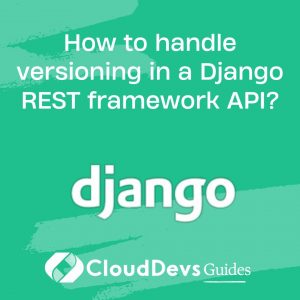How to use Django with Docker for containerization?
Using Django with Docker is a powerful combination that allows you to containerize your Django applications, making them portable, scalable, and easier to manage. Here’s a step-by-step guide on how to use Django with Docker:
- Install Docker:
Ensure that you have Docker installed on your development machine. You can download and install Docker Desktop for Windows and macOS or Docker Engine for Linux from the official Docker website.
- Create a Dockerfile:
In your Django project’s root directory, create a `Dockerfile` to define the Docker image for your application. Here’s a minimal example:
```Dockerfile # Use an official Python runtime as a parent image FROM python:3.9 # Set environment variables ENV PYTHONUNBUFFERED 1 # Create and set the working directory WORKDIR /app # Copy the requirements file into the container at /app COPY requirements.txt /app/ # Install any needed packages specified in requirements.txt RUN pip install -r requirements.txt # Copy the current directory contents into the container at /app COPY . /app/ ```
- Create a Docker Compose File (Optional):
Docker Compose is a tool for defining and running multi-container Docker applications. You can create a `docker-compose.yml` file to define the services needed for your Django project, such as the web server, database, and any other dependencies.
- Build the Docker Image:
Open a terminal, navigate to your project directory, and run the following command to build the Docker image:
```bash docker build -t my-django-app . ```
- Run the Docker Container:
Once the image is built, you can start a Docker container from it:
```bash docker run -d -p 8000:8000 my-django-app ```
This command will run your Django application in detached mode, exposing it on port 8000 of your host machine.
- Access the Application:
You can now access your Django application by opening a web browser and navigating to `http://localhost:8000`.
- Database Setup (if applicable):
If your Django project uses a database, you can configure Docker Compose to set up a database container and connect it to your Django application.
By following these steps, you can containerize your Django application using Docker, making it easier to deploy and manage across different environments. Docker allows you to isolate your application and its dependencies, ensuring consistent behavior regardless of the host system.






